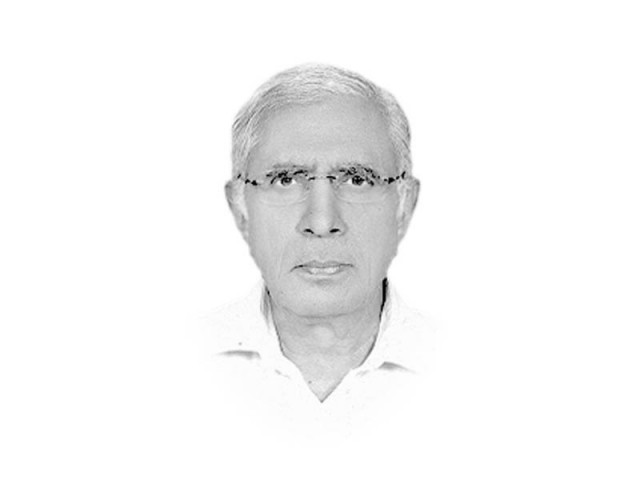State of human rights in Pakistan
Discussing human rights in Pakistan during heightened political unease in the country may sound too incongruous

The writer served as executive editor of The Express Tribune from 2009 to 2014
Ensuring the National Commission for Human Rights is able to carry out its mandate independently and effectively; Reinstating the moratorium on the death penalty; Abolishing mandatory death penalty and ensuring that death penalty is provided only for the ‘most serious crimes’; Criminalising enforced disappearance and putting an end to the practice of enforced disappearance and secret detention; Ensuring that all allegations of enforced disappearance and extrajudicial killings are promptly and thoroughly investigated; Reviewing legislation relating to the military courts with a view to abrogating their jurisdiction over civilians as well as their authority to impose the death penalty; Reforming the proceedings of military courts and bringing them into full conformity with Articles 14 and 15 of the covenant; Ensuring that all elements of the crime of torture are prohibited in accordance with Article 7; Repealing all blasphemy laws or amending them in compliance with the strict requirements of the covenant; and reviewing policies and legislation on registration of international NGOs, including the vague grounds on which registrations can be cancelled.
Discussing human rights in Pakistan at this hour of heightened political unease in the country may sound too incongruous to many. But it is never too untimely to discuss basic issues of governance such as the state of human rights no matter what the state of its politics is in a given country.
More so because on the same day, July 27th, UK’s foreign and commonwealth office released a report on the same subject which said that Pakistan’s human rights situation in 2016 remained of significant concern to the UK. Serious violations of women’s and children’s rights continued throughout the year. Terrorist incidents persisted despite a continued improvement in the security situation. The country’s minority communities suffered widespread persecution.
The report said that in Pakistan modern slavery has continued to be a major problem. The crimes under this problem are covered by a variety of terminology. At the international level they are set out in the universally agreed Sustainable Development Goal (SDG) 8.7 which calls for “immediate and effective measures to eradicate forced labour, end modern slavery and human trafficking and secure the prohibition and elimination of the worst forms of child labour, including the recruitment and use of child soldiers.” In addition, SDGs 5.2 and 16.2 call for an end to trafficking and exploitation, of women and of children, respectively.
The Global Slavery Index estimates that there are as many as 46 million people in modern slavery around the world. The UK’s human rights objectives for Pakistan for 2015–2018 focus on six themes: the death penalty, women’s and children’s rights, freedom of religion or belief and minority rights, respect for the rule of law and democracy, freedom of expression and economic and social rights, including modern slavery. In all these areas, the UK raised its concerns and urged Pakistan to adhere to its international obligations. The operating space for domestic and international NGOs narrowed considerably, driven in large part by uncertainty over registration. This impeded their work and is yet to be resolved. UK’s support for criminal justice reform was extensive, provided through programmes to improve civilian capacity to investigate, prosecute and convict criminals, including terrorists, in line with international standards.
The review of Pakistan’s human rights performance under the UN Universal Periodic Review process in November 2017 is an opportunity for the government to demonstrate real progress on its human rights commitments. A decision not to extend the use of military courts to try civilian terrorist cases, a major concern given their lack of transparency, would be a welcome sign. In 2017, the UK will continue to support the government in building a more secure, prosperous and democratic country where the rights of all citizens are respected regardless of gender, ethnicity or belief.
Published in The Express Tribune, July 29th, 2017.
Like Opinion & Editorial on Facebook, follow @ETOpEd on Twitter to receive all updates on all our daily pieces.















COMMENTS
Comments are moderated and generally will be posted if they are on-topic and not abusive.
For more information, please see our Comments FAQ